Paul DeMarco: Governor Kay Ivey should call a Special Session to address crime

Violent crime in our state continues to get worse. In Birmingham alone, homicides are up by 15 percent after the first six months of the year. And look at Montgomery, where homicides have increased by 93 percent over the past five years. There is no question public safety has become the number one problem in this state and is not being addressed at the local level. Thus, it will be up to state leaders to strengthen the Alabama’s criminal justice system. This past Spring, Louisiana Governor Jeff Landry called a special session to address the horrific crime rates that have made some of the cities in his state some of the most dangerous places to live in the country. State leaders understood that they could not wait any longer to address the problem, as it was just creating more crime victims. Louisiana lawmakers successfully passed legislation that gave more tools to law enforcement and prosecutors to go after the bad guys. Alabama should follow suit. Governor Kay Ivey should work with Attorney General Steve Marshall and Alabama legislators to approve new laws to deter crime and punish those that wound endanger the public. Now is the time to bring the stakeholders in the criminal justice system together to study entire system from crime, to arrest, to sentencing and incarceration. Then those recommendations should be the basis of bills to propose to take on the violent crime in the state. Most importantly, there should be truth in sentencing implemented in this state. Just as in Louisiana, Alabama leadership should address crime and public safety sooner rather than later. Paul DeMarco is a former Alabama House of Representatives member and served as Chair of the House Judiciary Committee. He can be found on X, formerly Twitter, at @Paul_DeMarco
Hoover Council President John Lyda describes “financial disarray” and notes fraud possible
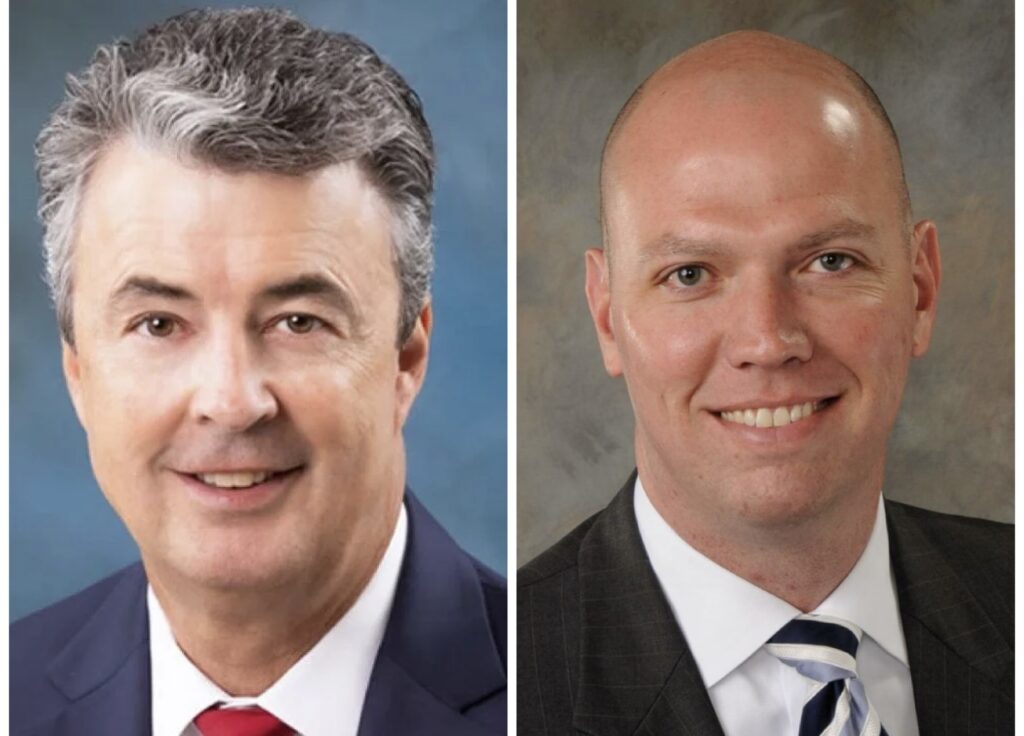
A month ago, Alabama Today submitted a formal public records request to the City of Hoover, copying City Councilors John Lyda and Curt Posey on that email. While City Clerk Wendy Dickerson acknowledged receipt of the request, so far, the city has failed to produce a single record, return a phone call, or give a status update about it. An email exclusively obtained by Alabama Today sheds light on some of what the city is hiding by withholding the requested public documents. Lyda emailed the rest of the council on April 9, 2024, with the subject line “Hoover Forensic Audit- Kroll Proposal.” Good afternoon, Wallace Jordan has researched several options and vetted various individuals and firms for the completion of a forensic audit on city finances. Attached is a proposal from Kroll Investigative Analytics. I know there is a shared desire to get moving on this ASAP so that we can get assurance that the recent discovery of financial disarray is due to human error or carelessness rather than fraud. The cost is estimated to be between $145k and $177k and is expected to take between 60 and 90 days. Please let me know ASAP if you believe there’s sufficient reason not to move forward on this. Phillip will also be happy to provide any info on other firms and individuals they spoke with in finding the right fit for our needs. Thank you! John According to Lyda’s email, the forensic audit was expected to take 60-90 days. That was 92 days ago. Two sources tell Alabama Today that the forensic audit includes an investigation into unconfirmed reports of documents protected by the state document retention laws intentionally deleted by a former city staffer. Attorney General Steve Marshall’s office has a Special Prosecutions Division that has prosecuted ethics violations by city officials in recent years. Their website states, “This division prosecutes mainly public corruption and complex economic crimes. The special prosecutions division works with federal and state agencies to conduct joint investigations and prosecutions. In addition, the division assists various commissions and agencies with prosecutions.” It is unclear if the City of Hoover has yet been in contact with investigators for the state about Lyda’s concerns. As reported first in 1819 News, City Councilwoman Khristi Driver revealed the forensic audit publically for the first time in sworn testimony during the hearings contesting the Certificate of Need that the Hoover City Healthcare Authority has asked the state for. On May 30, Driver testified, “My understanding of the purpose of the audit would be to take a look at all of our financials to make sure that everything is in order and to follow up on some of the observations that were made in our most recent audit from our regular auditor.” According to the Hoover Sun, the last audit report for fiscal 2022 noted “some material weaknesses and significant deficiencies in the city’s internal controls. The material weaknesses included insufficient segregation of duties over financial reporting by an outsourced contractor at the Hoover Metropolitan Complex and errors and problems related to implementing a new business software system. The significant deficiencies dealt with the recording of accounts receivable transactions and the holding of checks for vendors.” An examination of publicly available records by a financial expert indicated that internal control weaknesses were found rather than material weaknesses, as described by Hoover Sun. Despite the concerns in the audit report, the Sun reported at the time that Hoover Mayor Frank Brocato “was not alarmed.” City officials have not publicly addressed the forensic audit, how it is being paid for, or how it impacts the timing and delivery of yearly annual audit from the city’s longtime auditor Barfield, Murphy, Shank & Smith (BMSS) Advisors and CPA. Earlier this year, the City of Homewood announced that it retained an independent forensic certified public accounting firm to investigate the theft of city funds and notified the Jefferson County district attorney and the FBI. A city employee was then arrested and charged with misappropriating city funds for allegedly stealing over six figures.
Steve Marshall announces the arrest of State Representative Kelvin Lawrence

Alabama Attorney General Steve Marshall announced today that Representative Kelvin Jamichael Lawrence of Hayneville, AL was arrested on two felony charges. According to the press release, “Lawrence, 50, a resident of Lowndes County, was charged with forgery in the second degree and with criminal possession of a forged instrument in the second degree. The indictment alleges that Lawrence, with the intent to defraud, falsely made, completed, or altered a builder’s license. Both forgery and criminal possession of a forged instrument are Class C felonies punishable by 1 year and 1 day to 10 years in prison. The case is being prosecuted by the Special Prosecutions Division. No further information about the investigation or about Lawrence’s alleged crimes may be released at this time.” During his 2018 campaign, WSFA reported that Lawrence was the “owner of two Subways in Hayneville and Fort Deposit and a licensed home builder.”
Alabama civil asset forfeiture law and process upheld by SCOTUS

Attorney General Steve Marshall applauded the U.S. Supreme Court’s 6-3 opinion protecting the traditional law enforcement power to seize contraband and the proceeds and instrumentalities of crime. Alabama Solicitor General Edmund LaCour argued the case Culley v. Marshall in the Supreme Court on October 30, 2023. In a statement, Marshall said, “The U.S. Supreme Court affirmed our previous victories in these cases. Law enforcement officers across Alabama work hard every day to keep their fellow citizens safe while respecting their constitutional rights. And the Court confirmed that those rights were respected.” The two plaintiffs had each loaned their cars to men who were stopped and arrested when Alabama police found controlled substances in their cars. According to court documents, “The State of Alabama filed a forfeiture complaint against Halina Culley’s car on February 27, 2019, just 10 days after the seizure of the car. But Culley waited six months before answering that complaint. And she waited another year—until September 21, 2020—before raising an innocent owner defense in a motion for summary judgment. Soon thereafter, on October 30, 2020, an Alabama state court granted Culley’s motion and ordered the return of her car. Lena Sutton similarly moved slowly in her forfeiture proceeding. Alabama brought a forfeiture case against Sutton’s car on March 6, 2019, just 13 days after the seizure of the car. Sutton initially failed to appear in the case, causing the state court to enter a default judgment for Alabama. Sutton later requested that the state court set aside that judgment, and the state court did so. Sutton then submitted a brief answer and served discovery requests on Alabama, but Sutton otherwise took no action until the state court set a date for the forfeiture trial. On April 10, 2020, three weeks before the scheduled trial date, Sutton finally moved for summary judgment on the ground that she was an innocent owner. Soon thereafter, on May 28, 2020, the state court granted her motion, and she recovered her car” The Attorney General’s office noted, that under Alabama law, “vehicles used to facilitate the transportation of controlled substances may be forfeited upon proper process. But if the owner of a seized vehicle is found to be innocent at a hearing, the property is returned. In these cases, the plaintiffs had access to the full protections of the judicial system within days. Still, they claimed a constitutional right to yet another hearing, which Alabama argued ‘would interfere with important law-enforcement activities” and risk property being “removed, destroyed, or put to illegal use.’ Justice Brett Kavanaugh’s majority opinion agreed with Alabama’s understanding of the Due Process Clause and affirmed the decision of the U.S. Court of Appeals for the Eleventh Circuit, dismissing the case.” In his statement, Marshall thanked the team who successfully litigated these cases from the district court to the Supreme Court, including Solicitor General Edmund LaCour, Deputy Solicitor General Robert Overing, Assistant Chief Deputy Attorney General Brad Chynoweth, and Assistant Attorney General Brenton Smith.
Steve Marshall joins 25 other Attorney Generals to fight Joe Biden’s proposed gun rule

Twenty-six states sued the Bureau of Alcohol, Tobacco, Firearms and Explosives on Wednesday, arguing a new federal rule it’s implementing targets lawful gun owners and is unconstitutional and illegal. Texas and Kansas led two multi-state coalitions with Alabama Attorney General Steve Marshall joining the Kansas coalition; Florida filed its own lawsuit. Texas Attorney General Ken Paxton and Kansas Attorney General Kris Kobach announced their multi-state coalitions at a joint press conference in Frisco, Texas, on Wednesday. The announcement was the first time Paxton has held a press conference about official state business since he was impeached last year. Paxton was the first Texas attorney general to be impeached in state history after 60 Texas House Republicans joined nearly all Democrats to vote to impeach him on 20 counts. He was acquitted by the Senate last September. The states sued the ATF and the Department of Justice and their effective heads over a new ATF rule the Biden administration finalized on April 19. The administration argues the rule is implementing aspects of the 2022 Bipartisan Safer Communities Act spearheaded by Sen. John Cornyn, R-Texas. President Joe Biden has called for Congress to enact so-called “universal background check” legislation, which would require every private firearms transaction to be regulated by the federal government. Congress, under Democratic and Republican leadership, has repeatedly declined to do so. For decades, federal law has distinguished between firearms dealers, who are required to have a federal license to sell firearms, and private individuals who are not required to have a license to purchase and sell firearms privately. Claiming the new law as the basis for the rule, the ATF measure would require thousands of law-abiding citizens to register as dealers to buy, sell or trade firearms with friends and neighbors. The Republican attorneys general argue the rule is unconstitutional and burdens citizens with unnecessary costs. The Texas coalition includes Louisiana, Missouri, and Utah. Their lawsuit was filed in U.S. District Court Northern District of Texas Amarillo Division. The Kansas coalition includes Arkansas, Iowa, Montana, Alabama, Alaska, Georgia, Idaho, Indiana, Kentucky, Missouri, Nebraska, New Hampshire, North Dakota, Oklahoma, South Carolina, South Dakota, Tennessee, Virginia, West Virginia, and Wyoming. Their lawsuit was filed in U.S. District Court for the Eastern District of Arkansas Delta Division. Both lawsuits have gun owners included as plaintiffs. The Kansas coalition included newly re-elected NRA board member Judge Phil Journey. “Yet again, Joe Biden is weaponizing the federal bureaucracy to rip up the Constitution and destroy our citizens’ Second Amendment rights,” Paxton said. “This is a dramatic escalation of his tyrannical abuse of authority. With today’s lawsuit, it is my great honor to defend our Constitutionally-protected freedoms from the out-of-control federal government.” Kobach said, “Biden’s latest attempt to strip away the Second Amendment rights of Americans through ATF regulations will make many law-abiding gun owners felons if they sell a firearm or two to family or friends. This rule is blatantly unconstitutional. We are suing to defend the Second Amendment rights of all Americans.” In a separate statement, Florida Attorney General Ashley Moody said the rule was President Biden’s “latest step in trying to take guns away from law-abiding Americans. We are fighting back against this federal overreach that would force thousands of law-abiding gun owners to register as federal firearms dealers and navigate a federal bureaucracy. It’s unlawful and reflects a lack of respect for our Second Amendment rights. We won’t stand for it.” Florida sued in U.S. District Court Middle District of Florida Tampa Division. Its 16-page brief states the rule “goes far beyond the plain text of the BSCA. It purports to force thousands of law-abiding gun owners to register as federal firearms dealers and navigate a federal bureaucracy as a precondition to engaging in constitutionally protected activity. The challenged rule is unlawful…ATF does not have authority to promulgate it because ATF’s rulemaking authority is carefully circumscribed. But even if it did, the challenged rule unlawfully attempts to depart from the plain meaning of the BSCA to achieve President Biden’s policy goals.” All three lawsuits named the ATF, the Department of Justice, and their respective heads as defendants. They ask the courts to rule that the ATF rule is unlawful and to permanently enjoin the ATF from implementing it. This article was published with permission from The Center Square.
Most redistricting challenges have been dropped
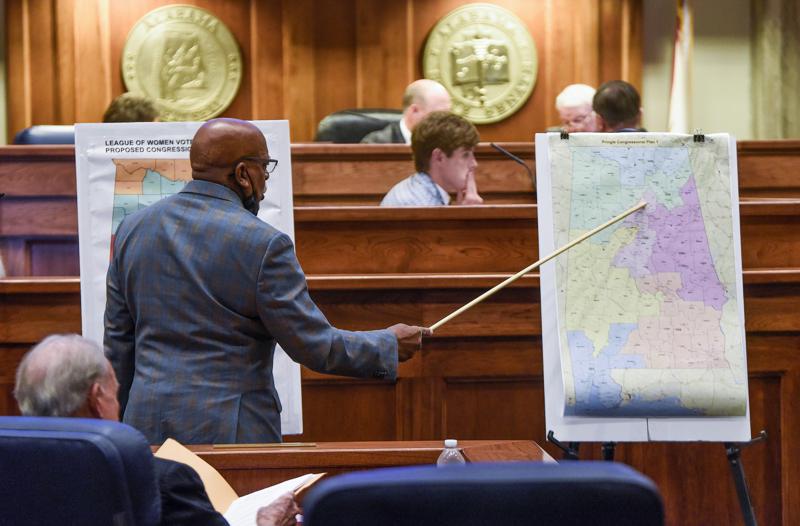
The Alabama Legislature reapportioned and redistricted all of the congressional districts, the state board of education districts, and the districts in the Alabama House and Senate during a 2021 special session. In June, the U.S. Supreme Court ruled that the congressional redistricting likely violated the Voting Rights Act of 1965, ultimately leading to the federal court redrawing the districts to create a second majority Black district in the state. That decision made many legislators concerned that the state legislative districts would be next, as suits had already been filed pending the outcome of the congressional redistricting case. Those concerns were alleviated on Thursday when Alabama Attorney General Steve Marshall (R) announced today that the plaintiffs who challenged 33 different State House and Senate districts have now dropped challenges to only two state Senate districts. The decision by the plaintiffs to drop the cases came following the Attorney General’s filing of a motion to dismiss the claims. Now, challenges to only two Senate districts remain. “For two years, my office has been defending the State’s redistricting plans,” Marshall said in a statement. “I am pleased to report that the plaintiffs have dropped all their challenges to the State House districts and nearly all their challenges to the State Senate districts. We think the plaintiffs’ remaining two claims also lack merit. I will continue to defend Alabama’s laws and fight attempts to redraw our districts based on racial goals rather than common interests.” The 105 members of the Alabama House of Representatives during the 2023 regular session were divided 77 to 28 between Republicans and Democrats. The 28 Democrats represent majority-minority districts. Two House seats formerly held by Republicans are currently open and will be decided by pending special elections. Republican Bryan Brinyark faces Democrat John Underwood in HD16 on January 9. Republican Teddy Powell faces Democrat Marilyn Lands in HD10 on March 26. There is a potential for Democrats to pick up both House seats there in low-turnout special elections. The 35-member Alabama Senate during the 2023 regular session was divided 27 to 8, with the 8 Democrats representing majority-minority districts. The Republican-leaning Senate District 9 seat is open and will be decided in a special election on April 23. To connect with the author of this story or to comment, email brandonmreporter@gmail.com.
Lawsuit alleges Alabama prisons using forced labor
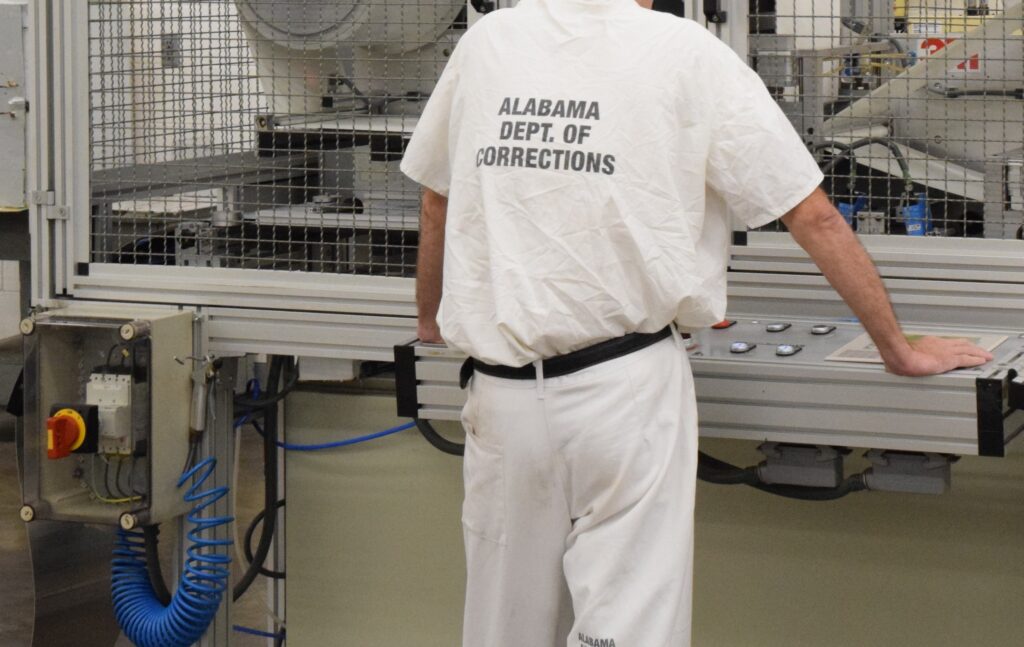
Alander Rocha, Alabama Reflector Alabama’s prison labor program system is a form of modern-day slavery, according to a 126-page lawsuit filed by former and currently incarcerated Alabamians, unions, and civil rights organizations on Tuesday morning. The lawsuit, filed in the U.S. District Court for the Middle District of Alabama in Montgomery, alleges that Alabama prison labor is sustained by punishing those who refuse to work or those who encourage other prisoners to refuse to work. It also accuses public and private entities, ranging from local governments to fast food restaurants and grocery stores, of benefitting from the labor. “They have been entrapped in a system of ‘convict leasing’ in which incarcerated people are forced to work, often for little or no money, for the ‘benefit of the numerous government entities and private businesses that ’employ them,’” the lawsuit alleged. The Alabama Department of Corrections said Tuesday it does not comment on ongoing litigation. The plaintiffs in the lawsuit — who include currently and formerly incarcerated Alabamians, three unions representing service industry employees, and the Woods Foundation, a civil rights organization — are asking the court to issue an injunction, ending Alabama’s current practice of “forced [prison] labor;” to release individuals qualified for parole; require the state to pay the plaintiffs what they earn through working in the prison system, as well as monetary damages to be determined at trial. Lakiera Walker, one of the plaintiffs in the lawsuit and paroled in 2023, said in a conference call Tuesday that she endured dreadful work conditions in the 15 that she was incarcerated at the Julia Tutwiler Prison and a work-release program in Birmingham when she was required to work outside of prison as a condition for her release. “I started working at a place called Southeastern Meats. It was a warehouse. It was a freezer. We would work from 2 p.m. to 2 a.m. — 12 hours a day — with no sufficient clothing is job,” she said. “Some days you were freezing, freezing cold between 30 and 40 degrees.” Walker alleges she was sexually harassed by her supervising officer, when she was working for Jefferson County doing road work from 2018 to 2020, making $2 a day. After reporting the incident, she was reprimanded for refusing to work and had to work additional hours. “So many women on the inside now that are afraid to speak out for fear of retaliation,” she said. “Those women they really need help. They really need a voice.” Janet Herold, legal director at Justice Catalyst Law and an attorney representing the plaintiffs, compared the current system to Alabama’s convict-leasing system, which ran from the 1870s to 1928. Under convict-leasing, private companies paid the state for uncompensated labor by state inmates, most of whom were Black, to work in degrading and often deadly conditions. The lawsuit claims Alabama made almost half a billion dollars from prison labor in 2023. “We’re not talking here today about a new Jim Crow; we’re talking here about the old Jim Crow,” Herold said. The lawsuit also alleged that the state grew these programs by favoring white over Black prisoners in parole decisions for release. It further alleges that the Alabama Board of Pardons and Paroles, which has sharply curtailed parole grants in recent years, has “unlawfully refused to release people from prison and further skewed the racial composition of the incarcerated population by wrongfully denying parole to thousands of Alabamians—and to Black Alabamians in particular.” A message seeking comment from the Alabama Board of Pardons and Paroles was left on Tuesday. The lawsuit alleged the parole board, under directions from Gov. Kay Ivey and Attorney General Steve Marshall, “has unlawfully refused to release people from prison and further skewed the racial composition of the incarcerated population by wrongfully denying parole to thousands of Alabamians—and to Black Alabamians in particular.” Ivey and Marshall’s offices did not return requests for comment on Tuesday. Alimireo English, a plaintiff currently incarcerated at the Ventress Correctional Facility, was denied parole in November. English said he has been forced to supervise a dorm of 190 incarcerated people, without any supervision from a correctional officer. English said in the conference call that he holds keys to gates and doors, works 12-14 hours a day, sometimes seven days a week, and is on call 24 hours a day. His work allows the administration to use their limited staff in more unstructured dorms, he said, or to give them days off for “employees who are themselves relying on the parole-ready inmates.” “Why would the slave master, by his own free will,” he asked, “release men on parole who aid and assist them in making their paid jobs easier and carefree?” Alabama Reflector is part of States Newsroom, a network of news bureaus supported by grants and a coalition of donors as a 501c(3) public charity. Alabama Reflector maintains editorial independence. Follow Alabama Reflector on Facebook and Twitter.
AG Steve Marshall: Private individuals can’t bring Section 2 Voting Rights Act claims

Alander Rocha, Alabama Reflector The Alabama Attorney General’s office argued in a motion filed last week in a Louisiana congressional redistricting case that private individuals cannot bring actions under a key provision of the Voting Rights Act. In a motion signed on by 12 Republican-led states, including Alaska, Georgia, Idaho, Indiana, Iowa, Kansas, Mississippi, Montana, Nebraska, South Carolina, Texas, and West Virginia, Alabama Attorney General Steve Marshall argued to the 5th Circuit Court of Appeals that Section 2 of the Voting Rights Act does not give private individuals the right to sue, or uphold an individual’s right to obtain monetary damages for claims of intentional discrimination. “There is no Section 2 liability unless ‘it is shown that’ members of a protected class ‘have less opportunity’ not just ‘to elect representatives of their choice’ but also ‘to participate in the political process,’” the motion argued. The argument rests on a recent 8th Circuit Court of Appeals opinion by Judge David Stras, appointed by former President Donald Trump, which argued that Congress only gave attorney generals the right to claim damages under the Section 2 of the Voting Rights Act. The attorney general’s office did not return a request for comment Monday. The argument, if upheld by the federal courts, would severely limit future challenges under Section 2, which bans voting and election practices that discriminate by race. NAACP Legal Defense Fund Deuel Ross, the organization representing plaintiffs who challenged both Louisiana and Alabama’s maps, said in a phone interview that Louisiana’s case won’t impact the Allen v. Milligan case decision in Alabama, the challenge that led to the court-ordered redrawing of Alabama’s congressional map, as Alabama is in the 11th Circuit Court of Appeals. Ross said the argument Marshall raised does not have merit, and that it should be rejected. “We’ll see what happens in the 5th Circuit, but the court has already rejected that argument; there’s Supreme Court precedent rejecting that argument,” Ross said. “And in the Alabama case, specifically, because it’s not in the 5th Circuit, anything that happens in the 5th Circuit won’t directly impact the Alabama case.” The case, Robinson v. Ardoin, is similar to Allen v. Milligan. Plaintiffs in the Louisiana case are challenging a map with just one majority-Black district lawmaker, adopted despite a federal district court order. Louisiana’s Black population exceeds 30%, which the court said merits a second Black district out of six total. Marshall’s argument cites a 1971 Supreme Court case, Whitcomb v. Chavis, that states “that [B]lacks enjoyed full access to the political process, and thus held that the ‘failure of the ghetto to have legislative seats in proportion to its population emerges more as a function of losing elections than of built-in bias …’” The 1971 case, the motion argued, “explained that ‘[participation] in the political processes’ meant those activities most common to voters: being ‘allowed [1] to register or vote, [2] to choose the political party they desired to support, [3] to participate in its affairs[,] … [4] to be equally represented on those occasions when legislative candidates were chosen,’ and [5] not be ‘regularly excluded from the slates of both major parties.’” The United States Supreme Court in September denied Alabama’s request to stay a lower court decision directing a special master to draw new state congressional maps to remedy Voting Rights Act violations, opening the door to Alabama having two congressional districts with majority or near-majority Black populations. A three-judge panel in 2022 ruled that Alabama’s 2021 congressional map violated the Voting Rights Act by packing Black voters into a single congressional district. The panel, citing the racial polarization of voting in Alabama — where white Alabamians tend to support Republicans and Black Alabamians tend to support Democrats — ordered the state to draw a second-majority Black district or “something quite close to it.” After the U.S. Supreme Court upheld the lower court ruling last June, the Alabama Legislature in July approved a new map that created a 7th Congressional District in western Alabama and Birmingham with a BVAP of 50.65%, and a 2nd Congressional District in southeastern Alabama with a BVAP of less than 40%. Plaintiffs said that map did not address the court’s orders, and the three-judge panel agreed earlier this month. U.S. Circuit Judge Stanley Marcus and U.S. district judges Anna Manasco and Terry Moorer ordered special master Richard Allen to draw new maps, accusing legislators of ignoring their initial ruling. The state appealed to the Supreme Court, arguing the ruling would lead to “racial stereotyping” and violated their own redistricting principles. Alabama’s attorneys also made efforts to sway Justice Brett Kavanaugh, who joined most but not all of the court’s decision in June upholding the lower court ruling. The Alabama attorney general’s office frequently cited Kavanaugh’s opinion in a case banning affirmative action in college admissions, suggesting that plaintiffs and the lower court wanted to use “affirmative action” in the redistricting process. Marshall’s office ended the brief by concluding that Black Americans have the same voting rights as their white counterparts, and that vote dilution can only occur when people are prevented from participating in the political process. “The district court’s contrary rule is circular with no offramp,” the motion stated. “’[D]emands for outcomes’ will persist even decades ‘follow[ing] the cutting away of obstacles to full participation.’” Plaintiffs in the Louisiana case had not responded to Marshall’s brief as of early Monday evening. Alabama Reflector is part of States Newsroom, a network of news bureaus supported by grants and a coalition of donors as a 501c(3) public charity. Alabama Reflector maintains editorial independence. Follow Alabama Reflector on Facebook and Twitter.
AG Steve Marshall announces indictment of former Montgomery nursing home director
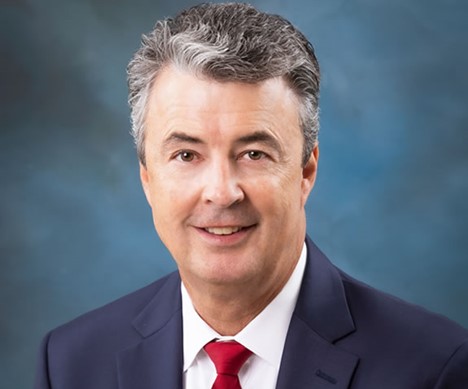
Attorney General Steve Marshall announced that a Montgomery County Grand Jury has returned a nine-count indictment against Tiffany Alexander Fields for the theft of over 1,000 Hydrocodone tablets from a Montgomery area nursing home while she was employed as the facility’s director of nursing. Fields surrendered at the Montgomery County Detention Facility on December 7. She was released on a $50,000 bond. The indictment alleges that Fields, 45, on nine different occasions from December 2022 to March 2023, obtained 114 to 120 Hydrocodone tablets from the nursing home’s contract pharmacy by submitting phony prescriptions purportedly for residents of the nursing home, which she then kept. Theft of any controlled substance is considered Theft of Property Second Degree, a Class C felony, and punishable by one to ten years imprisonment and up to a $15,000 fine.
Search warrant executed on White Hall Entertainment, shuts down casino in Lowndes County
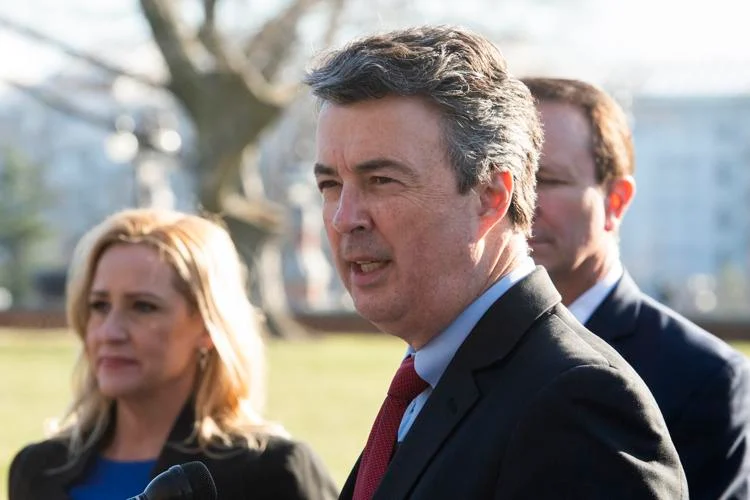
On Wednesday, the Alabama Attorney General’s office announced that state authorities have raided the illegal casino run by White Hall Entertainment in Lowndes County. Whitehall is one of a reported 52 illegal gambling establishments being allowed to operate by sheriffs and local officials, who are unwilling to enforce state law. Attorney General Steve Marshall announced on X that he had obtained a temporary restraining order to block White Hall from operating and obtained a search warrant to raid the facility. BREAKING News | https://t.co/hIE3knygEA pic.twitter.com/cRHPt2r03d — Attorney General Steve Marshall (@AGSteveMarshall) November 29, 2023 The AG’s office said that it found more than 600 illegal slot machines and multiple entities associated with the casino location, including Cornerstone Community Outreach, Winter Sky LLC, White Sands Technology LLC, BB23 LLC, and R&J Holding Company, Inc. Pursuant to the TRO, the facility has been closed and sealed, all assets of the entities have been frozen, and there can be no further financial transactions connected with the facility or those operating the facility until further orders from the Circuit Court of Lowndes County. The Attorney General’s Office also sought and executed a search warrant at the gambling facility as part of its ongoing investigation. “Today’s operations reflect the ongoing enforcement of previous orders issued by the Alabama Supreme Court for Lowndes County,” Marshall said in a statement. “The individuals, building owners, and operators of these illegal machines acted in defiance of the law, local court orders, and Supreme Court of our state. Rackets such as these will not be tolerated in Lowndes County or elsewhere in Alabama.” White Hall has been raided in the past. It was ordered to close last year after it lost in a decision before the Alabama Supreme Court. The Court issued an Order in September 2022 declaring that the operation of “electronic bingo” was an ongoing nuisance in Lowndes County and should be abated by the Circuit Court. White Hall Entertainment chose not to abide by the Circuit Court’s order and instead reopened with illegal gaming machines in defiance of the rule of law. The Attorney General’s Office led the operation and received assistance and support from White Hall Police Chief Alvetta Coates and the Lowndes County Sheriff’s Office. “The Alabama Supreme Court’s opinion makes clear what my office has maintained from the start: these gambling enterprises are not only patently illegal under Alabama law, but also a menace to public health, morals, safety, and welfare,” said AG Marshall in a statement at that time. “Today’s decision will forbid the Southern Star, White Hall, and Victoryland casinos from offering their slot-machine gambling to the public.” “In the five years since I filed lawsuits to cease illegal gambling in five different counties across the state, I have prevailed in court against one deep-pocketed gambling enterprise after another: in 2017, against the River City Casino in Morgan County; in 2018, against the Center Stage casino in Houston County; and, today, against the Southern Star and White Hall casinos in Lowndes County and the Victoryland casino in Macon County,” Marshall continued. The illegal gambling bosses have appealed to the Alabama Legislature. They are currently attempting to negotiate a deal where the legislature will pass a constitutional amendment allowing certain entities, including White Hall, to operate legally while forbidding other Alabamians from being able to participate in this industry. Any gambling facility in Alabama with electronic bingo machines, unless it is operated by the Poarch Creek Band of Indians (PCI), is a criminal enterprise that is operating in direct defiance of state law and is not regulated by any gaming commission. PCI is federally licensed under the Indian Gaming Act. To connect with the author of this story or to comment, email brandonmreporter@gmail.com.
Attorney General Steve Marshall opposes proposed foster family policy
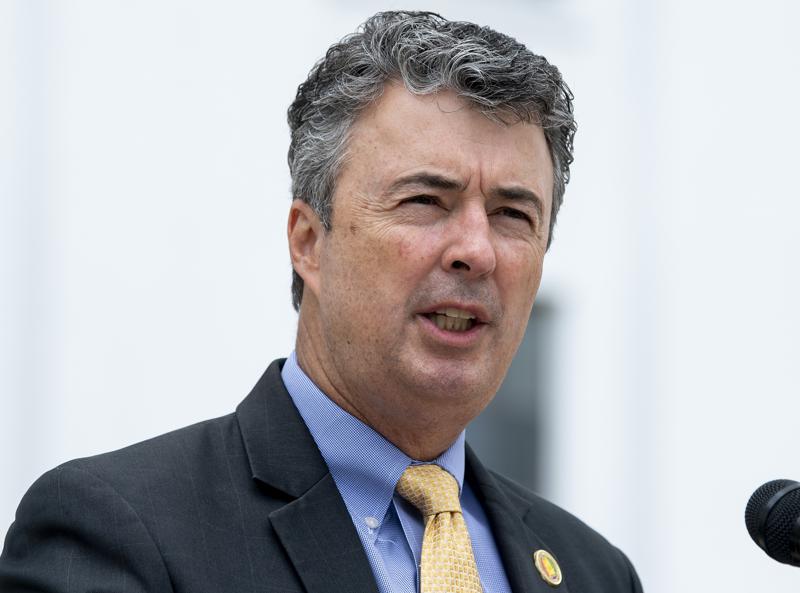
Alabama Attorney General Steve Marshall led a coalition of 19 states opposing President Joe Biden’s Department of Health and Human Services Administration for Children and Families’ proposed rule, Safe and Appropriate Foster Care Placement Requirements for Titles IV-E and IV-B. Federal law requires that state and tribal Title IV–E/IV–B agencies ensure that each child in foster care receives “safe and proper” care and has a case plan that addresses the specific needs of the child while in foster care to support their health and well-being. The proposed rule would require states to label certain foster care providers as “safe,” or by omission, “unsafe,” based on the degree to which LGBTQ children would be affirmed in their sexual orientation or gender identity. Marshall and other AGs believe the proposed policy presents serious concerns for faith-based foster care providers and families with traditional viewpoints. Given the high correlation between persons of faith and foster care, the proposed rule could threaten to directly harm children in need by limiting the number of available foster homes, risk kinship placements, and increase costs for states. “Since the first century, Christians across the globe have answered the call to provide a home and a family to children who had neither. Alabama boasts a particularly strong faith-based foster care and adoption community, and I will fight this Administration for them every step of the way,” said Attorney General Marshall. “Joe Biden continues to harass our State and others like it by implicitly threatening to withhold federal funding for children in need if we do not conform to his ideology, but our values are not for sale.” According to the rule proposal, “LGBTQI+ children are overrepresented in the foster care population. One recent confidential survey revealed that 32 percent of foster children ages 12–21 surveyed report that they identify as having a diverse sexual orientation or gender identity. A recent study using nationally representative survey data found that youth with a minority sexual orientation, such as lesbian, gay, and bisexual youth, are nearly 2.5 times as likely as heterosexual youth to experience a foster care placement.” The proposal stated, “A meaningful body of research demonstrates that LGBTQI+ children in foster care face disproportionately worse outcomes and experiences than other children in foster care due to their specific health and well-being needs are often unmet.” The federal proposal, however, states, “Under this proposed rule, agencies must ensure that a safe and appropriate placement is available for and provided to any child in foster care who identifies as LGBTQI+ and requests such a placement. The NPRM proposes to require agencies to ensure that the totality of their child welfare system includes sufficient placements for LGBTQI+ children that meet these standards, but would not require that every provider become designated as a safe and appropriate placement for LGBTQI+ children.” Marshall believes that if enacted, the proposed rule would deter faith-based individuals and organizations from participating in the foster care system, further reducing the number of available foster homes. According to the rule, in order for a foster home to be considered a “safe and appropriate placement,” the foster parents must use the child’s identified pronouns and chosen name, allow the child to dress in ways the child believes reflects his or her self-identified gender identity and expression, and facilitate access to “gender-affirming” medical care. However, the proposal also states, “If a provider alleges that any obligation that this proposed rule as finalized requires a state or tribe to impose substantially burdens the provider’s religious exercise, the Administration for Children and Families (ACF) will apply the test set out by the Religious Freedom Restoration Act (RFRA) to determine whether an exemption is required. Under RFRA, when Federal action substantially burdens an individual or entity’s exercise of religion, the Federal government must afford that individual or entity an exemption to the rule unless the government can demonstrate that applying the burden in that particular instance furthers a compelling governmental interest and is the least restrictive means of doing so.” The letter was led by Attorney General Marshall and signed by attorneys general in the following states: Alaska, Arkansas, Georgia, Idaho, Indiana, Iowa, Kentucky, Louisiana, Mississippi, Missouri, Montana, Nebraska, Ohio, South Carolina, Tennessee, Texas, Virginia, and West Virginia.
Alabama executes Casey Allen McWhorter

On Thursday night, the Alabama Department of Corrections executed Casey Allen McWhorter at the William C. Holman Correctional Facility in Atmore, Alabama, for the brutal 1993 slaying of Ed Williams. Alabama Attorney General Steve Marshall said that he regretted that it took so long for the victim’s family to receive justice. “Casey McWhorter was put to death for the brutal murder and robbery of Edward Lee Williams of Marshall County,” AG Marshall said. “Justice is the value we place on the life that was wronged. I regret that Mr. Williams’s family had to wait for over three decades for this finality. Most of us will never understand the agony that families like the Williams faced, waiting to see if the justice system really is just.” “As you might expect, the usual suspects are claiming that this just punishment is cruel and atrocious,” Marshall said. “I find it contemptible that so-called advocates have neglected to mention the details of Mr. Williams’s murder and the agony that his family has suffered since that terrible day. Edward Williams was shot 11 times, and as he lay on the ground fighting for his life, this murderer shot him in the head to ensure he was dead. In my book, that is cruel and atrocious. I ask the people of Alabama to join me in praying for Edward’s family and friends and that they might at last find peace and closure.” Attorney General Marshall informed the Alabama Department of Corrections shortly after 3:00 p.m. that there were no remaining legal challenges. Casey McWhorter’s officially pronounced time of death was 6:56 p.m. In 1993, Casey McWhorter carried out the plot that he had been conspiring to commit for nearly a month: to rob and murder Ed Williams. Weeks earlier, Lee Williams had asked Casey McWhorter and Daniel Miner to murder his father, Ed Williams. On Thursday, February 18, 1993, McWhorter and Miner were dropped off near Ed Williams’s house. They waited in the empty house for Williams to return home from work. McWhorter had manufactured homemade silencers for two .22-caliber rifles. When Ed Williams arrived home, he spotted Miner and grabbed his rifle away. McWhorter then stepped out of the shadows and shot Williams, wounding him. McWhorter’s rifle jammed, so he picked up Miner’s rifle and continued shooting Williams as the wounded man desperately tried to crawl to a bathroom. McWhorter kicked in the bathroom door, picked back up his rifle, unjammed it, and fired a final shot into Williams’s head, ending the man’s life. McWhorter confessed to the killing. A mountain of evidence was presented at his trial, and he was convicted of capital murder. To connect with the author of this story or to comment, email brandonmreporter@gmail.com.


